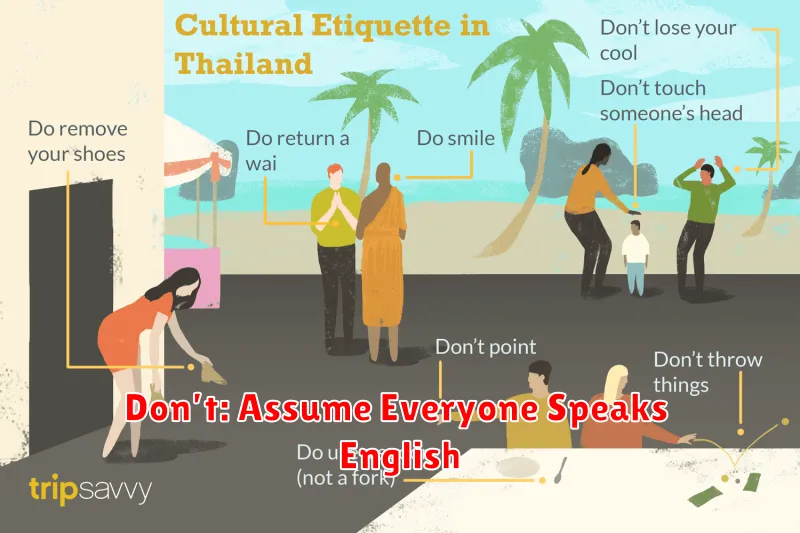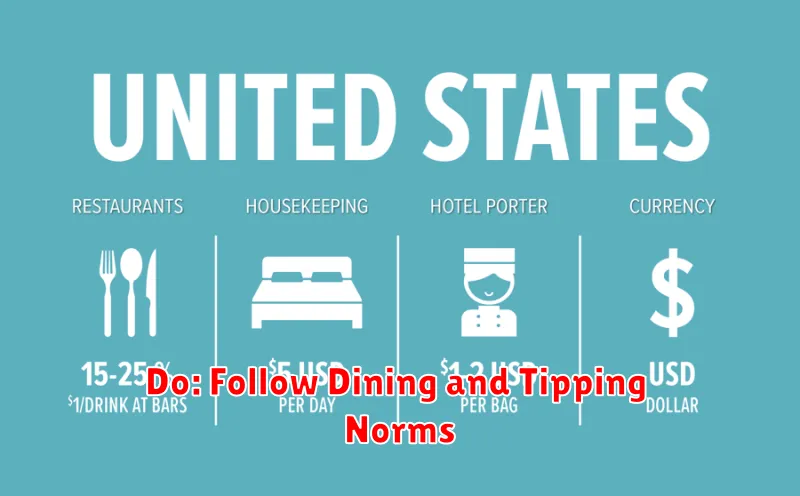Navigating the nuances of a foreign culture can be a rewarding, yet challenging aspect of international travel. Understanding the cultural dos and don’ts of your destination is crucial for a respectful and immersive experience. This article explores the essential cultural dos and don’ts in some of the world’s most popular travel destinations, offering valuable insights into local customs and etiquette. Whether you are planning a trip to bustling Asian metropolises, exploring the historical wonders of Europe, or venturing into the vibrant cultures of South America, familiarizing yourself with the cultural norms can greatly enhance your journey and foster positive interactions with locals.
From proper greetings and dining etiquette to appropriate attire and gestures, observing cultural dos and don’ts demonstrates respect for the local traditions. By adhering to these guidelines, you can avoid unintentional cultural faux pas, fostering a more meaningful connection with the people and places you encounter. This compilation of cultural dos and don’ts will equip you with the essential knowledge to navigate popular travel destinations with confidence and sensitivity, ensuring a smoother and more enriching travel experience. Prepare to embark on your travels with cultural awareness and embark on a journey of cultural discovery.
Why Respecting Local Culture Matters
When traveling to a new destination, respecting the local culture is paramount. It fosters positive interactions with residents, enriching your travel experience and creating meaningful connections. Demonstrating cultural sensitivity shows that you value and appreciate the traditions and customs of the place you’re visiting.
Respecting local culture helps preserve the unique heritage and identity of a community. Tourism can sometimes negatively impact local traditions; however, mindful travelers can help mitigate this by being respectful and conscious of their actions.
Beyond personal enrichment, respecting local culture also has practical benefits. It can help avoid misunderstandings and potential conflict. Adhering to local customs, even if they differ from your own, demonstrates respect and can prevent unintended offense. This, in turn, leads to a smoother and more enjoyable travel experience for everyone involved.
Finally, cultural sensitivity contributes to sustainable tourism. By respecting local customs and traditions, travelers help ensure that these practices can continue to thrive for future generations. This includes supporting local businesses, engaging with the community responsibly, and being mindful of the environmental impact of tourism.
Do: Learn Key Local Phrases
Making an effort to learn even a few basic phrases in the local language can significantly enhance your travel experience. It demonstrates respect for the local culture and can lead to warmer interactions with residents. Simple greetings like “hello” and “thank you” go a long way.
Learning how to ask for directions, order food, or say “excuse me” can be incredibly helpful in navigating everyday situations. While not fluent, these few phrases show you are willing to engage with the culture on a deeper level than a typical tourist.
Consider carrying a small phrasebook or using a translation app on your phone. This can provide quick access to essential phrases when needed. Don’t be afraid to try them out, even if your pronunciation isn’t perfect. Locals will usually appreciate the effort, and you might be surprised at how much easier communication becomes.
Don’t: Assume Everyone Speaks English

While English is widely spoken, it’s presumptuous to assume everyone in your travel destination will understand it. Communication barriers can lead to frustration and misunderstandings. Respect local languages and customs by learning basic phrases like “hello,” “thank you,” and “excuse me.” Even a small effort demonstrates cultural sensitivity and can enhance your travel experience.
Relying solely on English can limit your interactions and prevent you from fully immersing yourself in the local culture. Be prepared to utilize translation apps or phrasebooks. Non-verbal communication, like gestures and smiles, can also be helpful, but be mindful that their interpretations can vary across cultures. Remember, patience and a willingness to engage respectfully go a long way in bridging communication gaps.
Consider downloading a language learning app before you depart and practice some common phrases. This will not only help you navigate practical situations but also show respect for the local culture and enhance your overall travel experience. Learning even a few basic words can make a significant difference.
Do: Dress Conservatively When Needed

When traveling, it’s essential to be mindful of local customs and traditions, especially when it comes to attire. Certain destinations, particularly those with strong religious or cultural values, may require more conservative dress.
Researching the specific destination beforehand is highly recommended. This helps avoid unintentional disrespect and ensures a smoother travel experience. Consider packing items that can easily be layered or adjusted for varying levels of formality.
In some cultures, covering shoulders and knees is considered a sign of respect when visiting religious sites or even in public spaces. Loose-fitting clothing is often preferred, and excessively revealing attire may be viewed as inappropriate. Being mindful of these customs shows cultural sensitivity and fosters positive interactions with locals.
While adhering to local dress codes, you can still express personal style through choices in color, fabric, and accessories. For example, a simple scarf can be a versatile accessory for covering shoulders when needed. Ultimately, dressing conservatively when required demonstrates respect and allows for a more immersive cultural experience.
Don’t: Photograph Without Consent
In many cultures, taking someone’s photograph without their permission is considered disrespectful. It’s essential to ask before you snap, especially when photographing individuals. This shows respect for their privacy and cultural norms.
Be particularly mindful when photographing Indigenous people or those in religious settings. Photography may be restricted or even prohibited in certain sacred spaces. Observing and respecting local customs is crucial for a positive travel experience.
Children are another sensitive subject. Always obtain consent from a parent or guardian before photographing a child, regardless of local customs. Prioritizing their safety and well-being is paramount.
Even in seemingly public spaces like markets or festivals, a quick, polite request can go a long way in building rapport and avoiding misunderstandings. A simple gesture of respect can enhance your travel interactions significantly. Be mindful that non-verbal cues indicating discomfort should also be respected.
Do: Follow Dining and Tipping Norms

When traveling, observing local dining customs shows respect for the culture you are visiting. Researching dining etiquette beforehand can prevent unintentional faux pas. This includes understanding the appropriate use of utensils, how to handle shared dishes, and acceptable table conversation topics.
Tipping practices vary significantly across cultures. In some countries, tipping is an integral part of the compensation system for service staff, while in others, it may be considered offensive. Understand the local norms to avoid under-tipping or over-tipping, both of which can be misconstrued.
In some cultures, specific dining rituals exist, such as waiting for the host to begin eating or using specific phrases before and after a meal. Being mindful of these traditions enhances your cultural immersion and demonstrates your willingness to adapt to local customs.
Familiarize yourself with local table manners. For example, some cultures may consider it rude to rest your elbows on the table, while others may have specific ways of signaling to waitstaff. Observing these nuances can greatly enhance your dining experience and avoid causing offense.
Don’t: Argue Publicly or Loudly
In many cultures, maintaining composure and avoiding public displays of anger or disagreement is highly valued. Raising your voice, engaging in heated arguments, or airing personal grievances in public can be considered disrespectful and disruptive.
Avoid engaging in loud or confrontational arguments, especially with locals. Even if you feel justified in your frustration, expressing it publicly can reflect poorly on you and create an uncomfortable situation for everyone around you. Remember, cultural norms regarding public displays of emotion vary significantly. What might be acceptable in your home country could be considered highly inappropriate in another.
If a disagreement arises, strive to resolve it calmly and privately. In some cultures, losing your temper, even momentarily, can lead to a significant loss of face and damage relationships. If you find yourself in a frustrating situation, take a deep breath, step back, and try to address the issue discreetly and respectfully.

